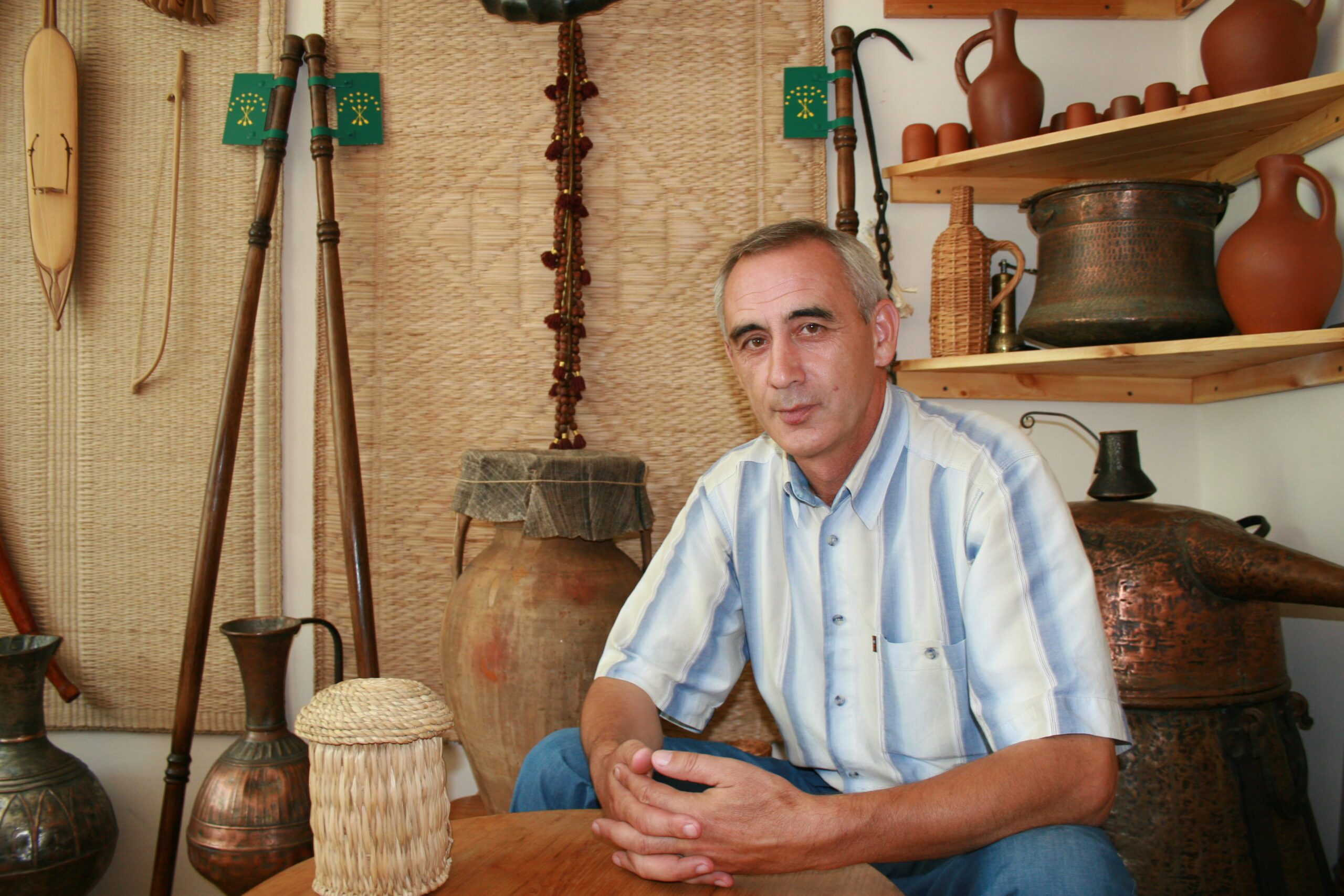The 13th Anniversary of the Assassination of Circassian Opinion Leader Tsipine Aslan

Aslan Tsipine, renowned Circassian ethnographer, assassinated on 29 December 2010 for alleged promotion of paganism.
JINEPS — The Circassian national movement gained significant momentum following the Soviet Union's collapse in 1991. During Boris Yeltsin's presidency, the more democratic environment compared to today's Russia enabled the Circassian community to establish various institutions and bring forward leaders capable of guiding the national movement. In such a context, Tsipine Aslan emerged as a prominent voice throughout Circassia.
Aslan's life tragically ended due to an unresolved assassination on December 29, 2010. Shebzuko Astemir, a journalist in Nalchik and director of the Djarez Circassian Language Club, reflected on Aslan's significance to the Circassian people and the impact of his assassination in an interview with Jineps.
"If history ever witnesses a 'Circassian Renaissance', it will be associated with his name."
Aslan Tsipine is a legendary figure in modern Circassian history. He was not only a renowned scientist and folklorist but also a champion of traditional Circassian culture, an accomplished beekeeper, journalist, and a respected figure. His legacy is diverse and influential. Regrettably, I never had the opportunity to meet him personally. However, his works clearly indicate his dedication to revitalising Circassian national identity by revitalising its spiritual and material culture. Aslan was a masterful orator, captivating people with his eloquence. His speeches, both in Adyghe and Russian, were remarkably literate. His profound influence on the Circassian people was notable for its breadth. He was a figure of undisputed authority. Years after his passing, no one has yet emerged to fill his void. I am confident that Tsipine Aslan will be remembered as a national figure in Circassian history. If our nation successfully reforms and history records a “Circassian Renaissance”, it will undoubtedly be linked to his legacy.

"He Opposed the Division of Circassians by Soviet Administrative Standards"
Aslan approached issues through a national lens. He did not align with the Circassian Soviet intellectuals who divided the Circassians into Kabardians, Adyghes, Circassians, and Shapsugs. He viewed the Adyghe as integral to the ethnic group, closely related to the Abkhaz-Abazas. This perspective was evident in all his endeavours. Thus, Aslan's passing is a loss not only for Kabardian [East] Circassians but for Western Circassians as well.
"History Demonstrates that Superficial Explanations Often Lack Depth"
The murderer was apprehended in 2011. After the assassination, a video was published on YouTube where the killer claimed responsibility, citing Aslan's revival of "ancient pagan traditions" as a threat to supposed Muslims. This simplistic narrative barely scratches the surface of the complex reality. History often reveals that superficial explanations tend to overlook deeper truths. I believe, in time, the complete story behind these events will come to light.
"Despite His Distance from Islam, He Emphasized the Counterproductive Nature of Public Attacks on Religion"
There's a circulating audio clip of Aslan on local radio, where he remarked, “All religions come and go, but you stay with your people.” This has been misconstrued as evidence of his hostility towards Islam. However, at the outset of his statement, Aslan underscores a crucial point: his views are grounded in a scientific assessment of the situation. He was an eminent scientist, deeply knowledgeable about Circassian human heritage. His opinion reflected that of an expert of the highest order.
Aslan was undoubtedly an intellectual who recognized the natural evolution and persistence of religious syncretism in Circassian identity. Despite his personal detachment from Islam, he consistently highlighted the adverse effects of public denunciations of religion. Aslan embodied a harmony of national and spiritual values. He represented the tradition of unifying the Circassian religious sphere, signifying a bridging of cultural and spiritual divides.
This interview was published by Jineps Newspaper, and is translated from Turkish.